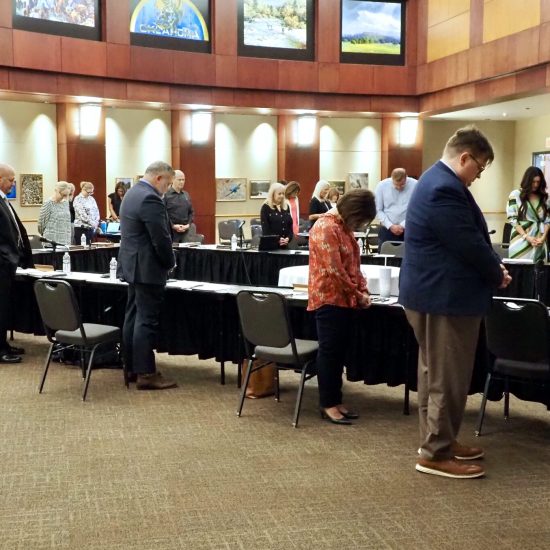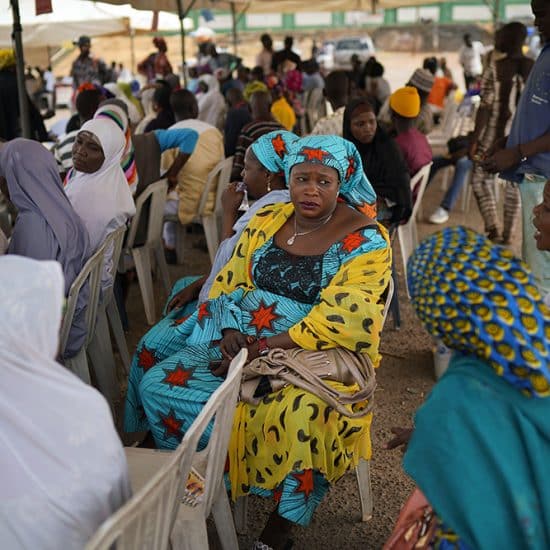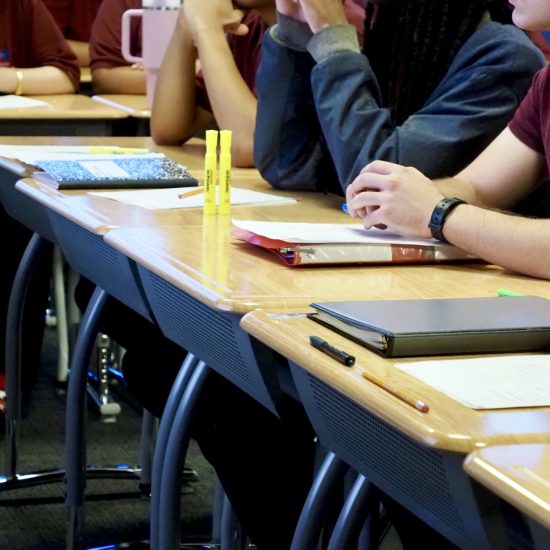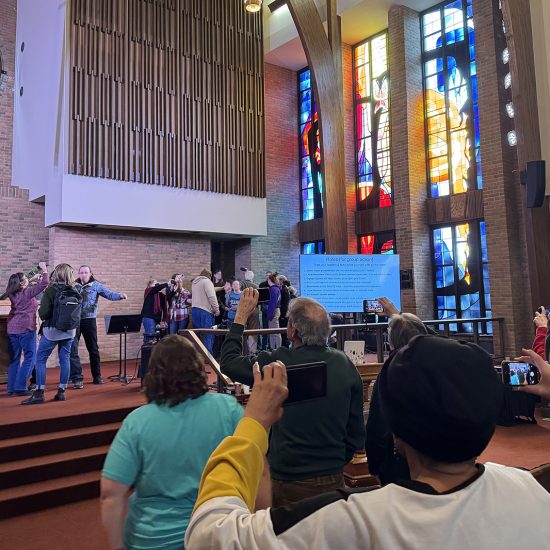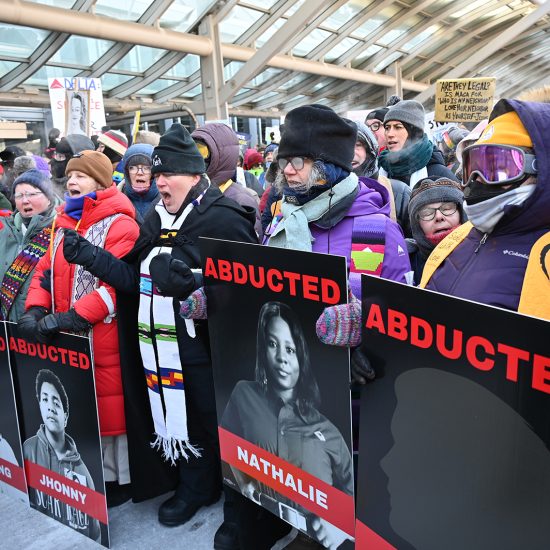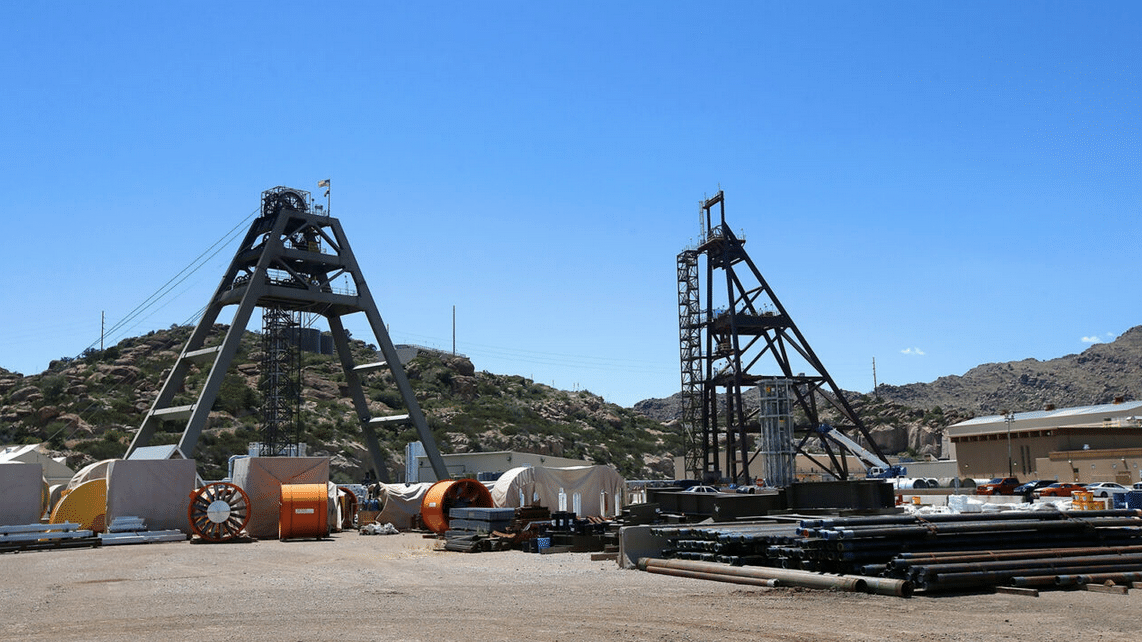
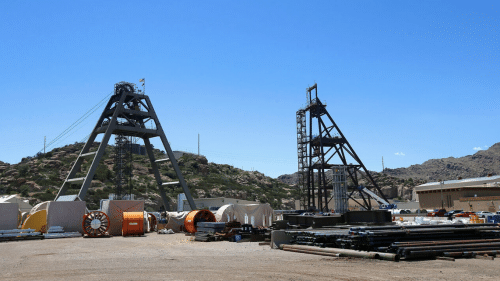
This file photo taken June 15, 2015, shows the Resolution Copper Mining area Shaft #9, right, and Shaft #10, left, that await the expansion go-ahead in Superior, Arizona. The mountainous land near Superior is known as Oak Flat or Chi’chil Biłdagoteel. It’s where Apaches have harvested medicinal plants, held coming-of-age ceremonies and gathered acorns for generations. (AP Photo/Ross D. Franklin, File)
(RNS) — A coalition of religious and Native American organizations is uniting to support the nonprofit group Apache Stronghold in its fight to save the sacred site of Oak Flat, a 7-square-mile stretch of land east of Phoenix that a multinational corporation is seeking to turn into an underground copper mine.
Christian, Muslim, Sikh and Indigenous groups filed amicus briefs on Jan. 9 urging the 9th U.S. Circuit Court of Appeals to protect the site that the Apache people deem sacred.
“While we cherish different religious convictions, we are united in our commitment to defend religious freedom. This case holds implications beyond its effect on Native American worship,” according to a brief filed by The Church of Jesus Christ of Latter-day Saints, Seventh-day Adventists, the Islam and Religious Freedom Action Team of the Religious Freedom Institute, and the Christian Legal Society.
The federal appeals court agreed in November to rehear Apache Stronghold’s case in front of a full 11-judge court, after a three-judge panel held earlier this year that the U.S. government could sell the site to Resolution Copper, a subsidiary of the British-Australian mining giant Rio Tinto. Oral arguments are scheduled for March.
Apache Stronghold’s lawsuit against the United States argues that destruction of Oak Flat would violate the Religious Freedom Restoration Act.
The three federal judges ruled that Apache Stronghold failed to show a substantial burden on its religious exercise.
“The government does not substantially burden religion every time it ends a governmental benefit that at one time went to religious beneficiaries: there must be an element of coercion,” according to the ruling.
The coalition of religious groups said in its amicus briefs that it believes otherwise.
If the federal appeals panel fails to find substantial burden here, “it would improperly limit the religious rights of people of faith throughout the Ninth Circuit,” according to a brief filed by the Jewish Coalition for Religious Liberty and Protect the First Foundation.
If Oak Flat were destroyed, “the Western Apaches could not find a viable substitute in which to commune with the Divine,” according to the brief, which adds that “a destroyed Oak Flat would devastate the Western Apache much like an obliterated Vatican for Catholics, a demolished Kaaba (in Mecca) for Muslims, or a dismantled temple for members of the Church of Jesus Christ of Latterday Saints.”
But it’s worse for the Western Apache people, the brief continues, “because their religion is rooted in the land itself, not just buildings that have been built there.”
Congress approved the transfer of the land to Resolution Copper in 2014 as part of the National Defense Authorization Act in exchange for 6,000 acres elsewhere.
Apache Stronghold founder Wendsler Nosie Sr. has maintained that Resolution Copper’s mine will swallow the site in a massive crater and render “longstanding religious practices impossible.”
“The diverse voices calling for protection of Oak Flat remind us that the government’s threat to destroy Oak Flat is a threat to destroy religious freedom for people of all faiths,” Nosie said in a statement.
The Sikh Coalition and the Mennonite Church USA were also among the groups that filed briefs in support of Apache Stronghold.
“We hope these voices will help the court understand that Oak Flat deserves no less protection than the many historical churches and other religious landmarks the government protects from coast to coast,” Nosie added.
The Apache people hold a number of important ceremonies at Oak Flat, known in Apache as Chi’chil Biłdagoteel. According to court filings, the ceremonies can take place only on the site, which would be destroyed by mining. The Apaches believe Oak Flat is a “blessed place” that is home to Ga’an — guardians or messengers between the people and Usen, the creator.


